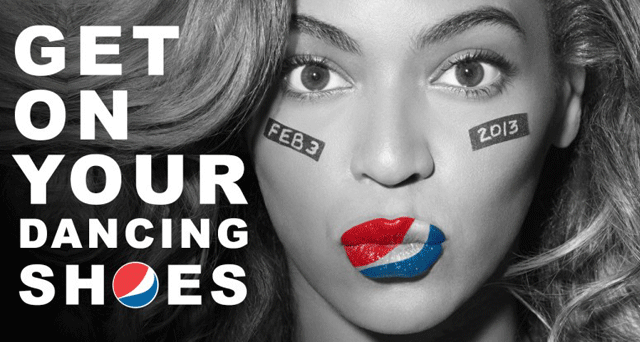Beyonce made $50 million partnering with Pepsi, Justin Timberlake banked $6 million for his ties to McDonald’s “I’m lovin’ it” slogan, and along with Maroon 5, will.i.am, and Britney Spears, they are among the famous singers with the most endorsements of unhealthy food and drinks, according to a new study.

About 81 per cent of the food and drinks marketed by pop stars are unhealthy, according to a new U.S. study.
The new research says that these celebrities are typically the face of fast food chains, junk food and sugary drinks. Their advertising is targeting kids and teenagers, according to the study.
“The popularity of music celebrities among adolescents makes them uniquely poised to serve as positive role models. Celebrities should be aware that their endorsements could exacerbate society’s struggle with obesity – and they should endorse healthy products instead,” the study’s lead author, Alysa Miller, said in a statement.
Miller and her team out of New York University picked out famous singers using Billboard magazine’s song charts in 2013 and 2014. They also looked at every endorsement the performers made between 2000 and 2014 in various mediums: television, magazines, radio and YouTube.
READ MORE: LeBron James, Peyton Manning food endorsements ‘sending mixed messages’ to kids
They ended up with 163 pop stars who were usually endorsing makeup, perfume and accessories in the ads. Food and drinks made up the second most common endorsement category. Sixty-five of the celebrities were tied to 57 different food and beverage brands.
Next, the researchers zeroed in on the quality of food they were marketing to kids. Turns out, 81 per cent of the products were junk food, sugary drinks or what the researchers called “nutrient poor,” according to the researchers.
According to the study, none of the music stars identified in the study backed fruits, vegetables or whole grains. Only one endorsed a natural food – it was Korean pop singer, Psy, who peddled Wonderful Pistachio.
When it came to drinks, only three endorsements were water-related. Seventy-one per cent were packed with sugar, with full-calorie soft drinks making up the majority of this category.
The celebrities who had the most food-related endorsements include:
will.i.am: Coca-Cola, Doritos, Dr. Pepper, Pepsi
Britney Spears: GG Tea, McDonald’s, Pepsi
Justin Timberlake: Chili’s, McDonald’s, Pepsi
Pitbull: Dr. Pepper, Pepsi, Sheets Energy Strips
Snoop Dogg: Hot Pockets, Monster Energy
When it came to YouTube views for ads, Rihanna, Britney Spears and Beyoncé had the most-watched endorsements.
The researchers say theirs is the first “rigorous” study to look at the nutritional content of the food and drinks marketed by music stars.
READ MORE: Teens’ drinking habits influenced by Hollywood movies: study
They’re hoping parents pay attention to what these celebrities are selling to their kids. They’re also calling on celebrities to use their star power to promote healthier options, Miller said.
This isn’t the first time researchers cautioned that stars’ influence may be tied to promoting unhealthy eating habits in kids.
Last year, for example, scientists warned that athletes – specifically LeBron James, Peyton Manning and Sidney Crosby – were sending mixed messages about health to kids.
In that case, 512 brands were linked to 100 professional athletes. James was selling Sprite, Vitaminwater, McDonald’s and Powerade in 2010. Crosby peddled Gatorade, Dempster’s Bread and Tim Horton’s and even Serena Williams endorsed Oreo cookies, Gatorade and Nabisco snack packs.
READ MORE: Ad bans lead to less fast food eating in Quebec, study says
In total, the athletes backed 62 food products, from Big Macs to Wheaties. Forty-nine per cent of the food products were high in calories and provided little nutrition.
The NYU study was published Monday in the journal Pediatrics. Read the full findings.
carmen.chai@globalnews.ca
Follow @Carmen_Chai




Comments